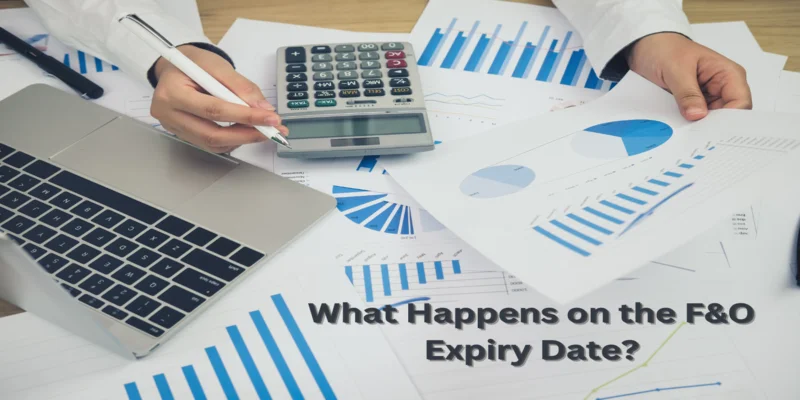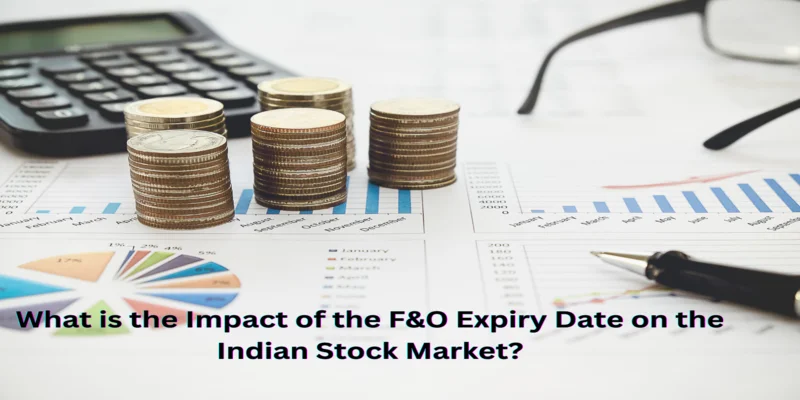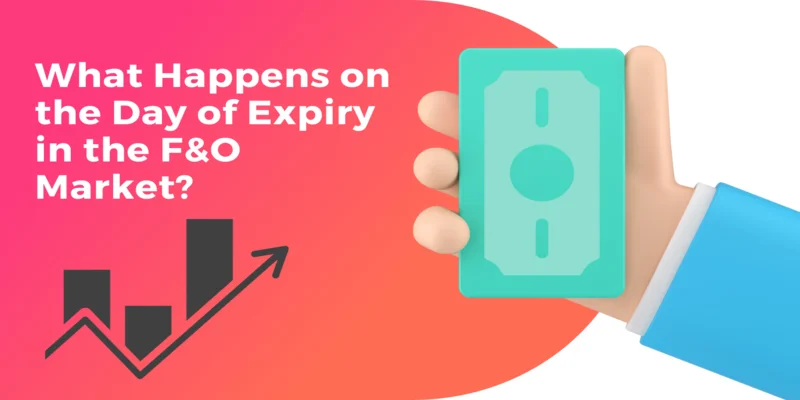We all know that every new film gets released on a Friday, the day when old movies go out of the theatres. Similarly, in the case of derivative contracts (a type of financial contract), the contracts expire on a particular day of every month. In the derivatives or future and options market, the F&O expiry date refers to the date when the contract becomes invalid. The monthly expiry day of derivatives contracts is the last Thursday of every month.
This article will cover expiry day trading in detail and also discuss its impact on the stock market.
What are Futures and Options (Derivative) Contracts?
A financial contract wherein the value is derived from an underlying asset, such as bonds, commodities, stocks, etc., is known as a derivative contract. One of the most common types of derivative contracts includes futures and options contracts that allows investors/traders to buy or sell an underlying stock or other assets at a pre-determined price on a specific date.
You will be amazed to know that there has been a huge increase in the number of investments in both futures and options. The future contracts traded in 2013 was 12.13 billion and it rose to 29.32 billion in 2022. Whereas, the number of options contracts traded increased from 9.42 to 54.53 billion contracts in the same period.
Futures and options are homogeneous as they both promise to buy or sell an asset at a future date at an agreed-upon price. The similarity, however, ends there.
Under an option contract, the buyer has the right, but not the obligation, to buy or sell a specific asset at a particular price on or before the expiration date. Hence, you are not liable to fulfil the promise. You can ignore the contract, and it will end on the expiry date, whereas, under a futures contract, you must honour it by the expiration date. This is how futures contracts differ from options contracts:
| FUTURES CONTRACT | OPTIONS CONTRACT |
| The buyer is required to uphold the agreement. | The buyer is not liable but can uphold the agreement. |
| There is a higher margin payment than options. | There is a lower margin payment as compared to futures. |
| Practiced by speculators and arbitrageurs. | Practiced by hedgers. |
| Under futures contracts, both profit and loss potential are unlimited. | Under an options contract, profit is unlimited, but the downside is limited. |
Futures Trading Example
Assume there are two investors who want to buy stock in an FMCG company: Investor A owns a stock in the FMCG company, which is currently worth Rs 900. Investor A believes the stock price will fall to Rs 870 in the coming weeks.
Investor B, on the other hand, believes the same stock will boom in the future because the company is launching a new product soon. Investor B has studied the market and believes the stock price will rise to Rs 950 in the coming weeks.
In this scenario, both A and B enter into a one-month futures contract. If the stock price rises above Rs 900, investor A will have to sell the stock at a discounted price to investor B. The action will be profitable for investor B. Similarly, investor A will gain from the transaction if the prices fall.
Options Trading Example
Assuming you opted for a long call option to purchase the stock at Rs 600 for January 1, as you believe the stock’s value will be much higher than Rs 600 on that specific date.
No matter the stock price on January 1, you need to purchase the shares at Rs. 600. If the shares are trading at a higher price on January 1, you make a profit, and vice-versa. However, in options trading, you can also choose not to exercise this futures contract. If you do, the only loss you will incur will be the premium you paid while purchasing the call option.
Thus, options and futures work in different ways, but the basic concept of these financial products is the same: they attempt to profit from stock without investing the entire amount.
What is the F&O Expiry Date in the Indian Stock Market?
The Indian Stock Market (NSE) has set a standard F&O expiry date to bring uniformity in trading. The futures and options expiry dates in India are the last Thursday of every month. For example, for a futures contract bought on December 4, 2023, the monthly expiry date would be December 28, 2023, the last Thursday of the month.
It is also important to note that the preceding day – the last Wednesday of the month – would be regarded as the monthly expiry date if the final Thursday of the month is a trading holiday.
In recent times, the Nifty and Bank Nifty Indices have set a weekly expiry day. Every Thursday, the weekly contracts come to an end. For active traders, weekly expiry presents a lucrative opportunity. Again, if Thursday is a trading holiday, Wednesday is considered a weekly expiry Nifty day.
What Happens on the F&O Expiry Date?

Trading in F&O and options happens in the following manner for these types of contracts:
1. In the case of futures derivative contracts
Under the futures contract, you would have to fulfil the contract on the expiry date in two ways:
- Cash settlement: Let’s say A and B enter into a forward contract to buy 10 shares of a company at Rs 100/share. However, the price of 10 shares ends up at Rs 90/share on the expiration day. In order to honour the contract, A is bound to purchase the shares at Rs 100 and pay the cash settlement to close the futures contract.
- Buying another contract: You can buy another contract to cancel your future contract. Assume you purchased a futures contract to buy 10 shares of XYZ company. You can buy another futures contract to sell 10 shares of XYZ on the expiry date. This new contract renders the first contract to sell the shares null and void. However, in such cases, you must settle the price difference, if any. The price difference is due to the difference in the price of the futures contract. The daily fluctuation of stock prices also affects futures and options pricing. Hence, the price of the first futures contract may differ from that of the second futures contract. In such cases, you must settle the price differential to complete your contract by the expiry date.
- Rollover: As the name implies, it is the process of replacing a contract that is about to expire with another contract that has an expiry date of later in the month.
It entails closing one F&O position in one contract and opening a comparable position in a different contract that expires in a contract with a further-out month. Depending on the liquidity and cost of rollover contracts, the switch may occur at the middle or end of the month.
2. In the case of options and derivatives contracts
In the case of option contracts, an investor does not have an obligation to fulfil the contract. As a result, the contract expires in the absence of action taken before its expiration date. The premium you paid to buy the option is the seller’s income, and you are not required to pay anything else to close the contract. For an in-the-money options contract, a trader may receive the settlement amount, but out-of-the-money option contracts expire null and void.
3. In the case of physical settlement of contracts (applicable for both futures and options contracts)
Traditionally, equity futures and options trading in India used to be cash-settled. This means that upon contract expiration, investors had to settle their position in cash rather than take delivery of the underlying security.
A circular issued by SEBI on April 11, 2018, mandates physical stock delivery for all stock F&O contracts. It indicates that all stock F&O contracts must be given or take delivery of the underlying security at the time of expiration. Physical settlement can help reduce price manipulation.
Only ‘In the Money (ITM)’ options will be physically settled; if the option expires out of the money (OTM), there is no delivery obligation, and it expires worthless.
Here’s a list of the delivery obligations for stock F&O contracts following expiration:
| SECURITY RECEIVABLE | SECURITY DELIVERABLE | |
| Futures | Long futures | Short futures |
| Call Options | Long ITM Call | Short ITM Call |
| Put Options | Short ITM Put | Long ITM put |
Buy/Sell Price of the Physically Settled Stocks
Expiry day trading is when all stocks are credited or debited as a result of the physical delivery of F&O. The selling or purchasing price will be as follows:
- Futures: The settlement price of the futures contract on the expiry date.
- Options: The strike price of the contract.
What is the Impact of the F&O Expiry Date on the Indian Stock Market?

Before you read further, can you guess the possible consequences of expiry-day trading? If you think it is related to the stock market’s volatility, you’ve nearly hit the bull’s eye. Read on to learn how the F&O expiry date impacts the stock market.
1. Price Fluctuations
As we already know, the value of futures and options contracts is derived from the underlying stocks or indices. However, in the short term, derivatives contracts can also affect stock prices.
Assume, for example, that investors are bullish in the near future. As a result, the volume of “buy” contracts increases in the derivatives market relative to “sell” contracts.
Given this, cash market investors may purchase shares in anticipation of higher prices. When this purchase increases in volume, the stock price rises.
2. Arbitrage Trading
Arbitrage trading also has an impact on stock market prices closer to the F&O expiry date. This trading is the practice of F&O traders evaluating the performance of the contracts’ underlying assets before the expiration date. For a better chance at success, F&O traders also engage in trading on secondary markets.
The traders might sell on the F&O market after purchasing from the secondary market. This buying and selling affects the entire stock market and results in price changes. However, this effect is only temporary because the stock market will correct itself after the F&O expiry date has passed.
Bottom Line
Before you begin trading futures and options, be aware of the futures and options expiry dates in India. The expiry day trading day foregrounds the settlement of your contracts, so it is critical to understand what happens on that date. It’s common to lose money on the day of expiration. But if you trade wisely, you can also make a lot of money.
FAQs
1. How do futures prices behave on expiry days?
The prices are highly volatile on the F&O expiry day and fluctuate by the minute. Based on simple demand and supply and market sentiments, future prices are determined at every point.
If the contract is exercised, then cash settlement takes place. Also, the parties can prefer to enter into a new contract, nullifying the first one. After expiration, the contract no longer holds any value or validity, irrespective of whether it is exercised.
2. Is last-day trading dangerous?
The answer to this question depends on several parameters. Your risk appetite and the amount of money at stake are significant in determining if last-day trading is dangerous or worth trying. A risk-averse novice investor who prefers to stay in a safe zone should avoid trading on the last day. Also, a weekly expiry date is riskier than a monthly expiry date. It is more volatile as the time span is shorter.
3. What will happen if I don’t square off my option contract on the expiry day?
In case you don’t square off the option contract on the expiry day, then the contract can be physically settled as follows:
If you were the buyer of options:
- In the money – Securities Transaction Tax will be charged at the rate of 0.125% on the intrinsic value (how much in-the-money the option is) of the option.
- Out of the money – OTM option contracts will expire worthlessly, and even the premium paid initially cannot be recovered.
If you were the seller of options: Depending on the money of the option contract, you get to keep the premiums received. There will be no implication of STT (Securities Transaction Tax) in this case.
4. What happens if you let a futures contract expire?
The position is automatically closed when the contract expires. If the asset’s settlement price is higher than your entry price, you make a profit; if it is lower, you lose money. Your profit or loss is added to or subtracted from your account.



